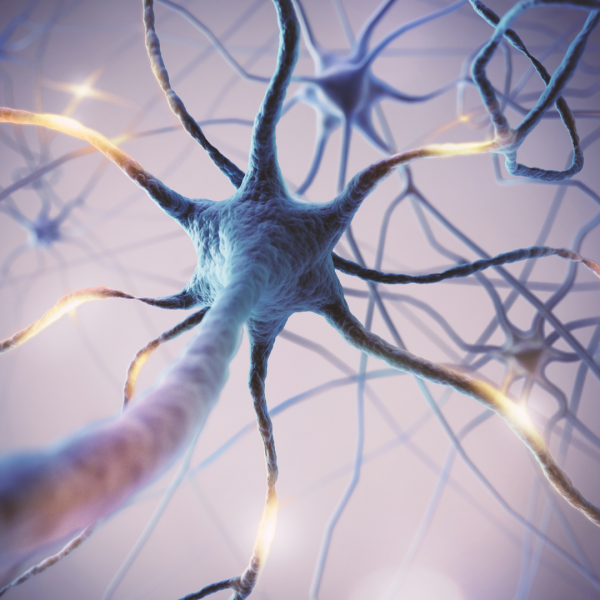Fact or Fiction: The Link Between Eggs and Prostate Cancer
Eggs are a major dietary source of choline. A careful review of the scientific literature reveals that choline:
- is an important nutrient, and is critical for brain, liver, and general health
- can be obtained from dietary sources
- should be consumed by the average person in the form of eggs, meat and milk
- shows no evidence that it causes cancer
- is a marker for prostate cancer if elevated in blood
- should possibly be restricted in the diet for patients suffering from prostate and other cancers (inconclusive evidence).

If choline is so good for you, why is there such confusion about the benefits of choline?
The majority of the confusion comes from the media misinterpreting science papers such as Richman et al (2012)1. When reading scientific papers with links such as this, it is very important to understand that correlation does not equal causation. That is, just because there appears to be a connection between high intake of dietary choline through meat, milk, and eggs and prostate cancer, doesn’t mean that the choline is causing the prostate cancer.

In a previous study, Glunde et al (2011)2 discuss in detail how abnormal choline metabolism (the way the body processes choline) is a hallmark associated with oncogenesis (creation of cancer cells) and tumor progression. In short, they conclude that the enzymes in the blood associated with creating, breaking down and using choline are not working properly and this causes issues with cell signaling and can lead to cancer. For example, an enzyme called “CHK” is high in prostate cancer cells, this enzyme causes higher phosphatidylcholine production in the cells, which goes into the blood and supports the transformation of healthy cells into cancer cells. Keep in mind that cancer cells are cells that are growing at abnormal rates and these new, cancerous cells require high amounts of choline. Therefore, increased blood choline levels are one of the markers of cancer, and specifically, of prostate cancer3, NOT the cause of the cancer. Choline is a “methyl donor”, a type of compound that allows for epigenetic changes (modification of the DNA in your cells) associated with the growth of prostate cancer. But this choline is not necessarily coming from food, it is actually being created by the cancer cells.
Another interesting causal link is that choline transporters in the intestines are increased by cells when prostate cancer cells are present. That is, the presence of prostate cancer cells causes the intestine to take in more dietary choline than when no prostate cancer cells are present.3
So likely, people should not be eating as much choline if they have prostate cancer, or alternatively, cancer therapies will start to target these transporters and cell mechanisms to prevent additional choline getting to the cancer cells. But the scientific literature has not provided evidence that dietary choline is a cause of the cancer in the first place.

In the original controversial study (Richman et al, 2012)1, the researchers did find that men in the highest quintile of choline intake had a 70% increased risk of lethal prostate cancer. However, this link was not seen in non-lethal/total prostate cancers. The problem with this study is that it is not showing that the dietary choline intake was the cause of the prostate cancer. Alternative explanations could include that high dietary choline causes lethal vs non-lethal prostate cancer when prostate cancer is already present as we know that choline enhances the progression of the cancer2,3. It could also be that eating a lot of meat, milk and eggs is associated with other behavioral risk factors for developing prostate cancer, which the Richman paper does acknowledge1. The subjects in the study were also all highly educated white men with potentially different risk factors than other demographics. This is a further example of the inappropriate extrapolation of study results, as not all demographics may show this correlation. Japan has the highest egg intake in the world4 and a significantly lower prevalence of prostate cancer5.
Interestingly, this study also found that the link between choline intake and prostate cancer was only found in free choline and glycerophosphocholine which comes from coffee, potatoes, skim milk, beer, reduced-fat milk, bananas, fish, broccoli, poultry, and soymilk. The link to increased lethal prostate cancer was not found with intake of phosphatidylcholine, sphingomyelin, and phosphocholine which are the forms of the majority of choline found in eggs.
It is also worth noting that low choline in the diet is associated with fatty liver and liver damage and that choline is essential for cognitive function and memory. It is likely that the benefits of choline intake outweigh any potential links to prostate cancer, these links which are currently inconclusive and cursory at best.
For further reading, the National Health Service in the United Kingdom did a thorough analysis of another one of Richman’s studies on eggs and prostate cancer and concluded that:
“Furthermore, while the researchers controlled statistically for a number of possible confounders, it is difficult to say whether other factors could account for this relationship. The researchers say that men in the study who consumed more red meat or eggs tended to have a higher BMI, exercise less and were more likely to smoke and have a family history of prostate cancer. Additionally, it is probably difficult to control completely for other dietary effects and focus the analysis on a single component of a person’s diet… The aforementioned limitations, however, weaken the strength of [their] conclusions, along with the fact that previous research has looked at this question and found no association. While an 81% increased risk sounds like a high and definitive figure, it is probably best to wait for more conclusive research before cutting eggs out of your diet.”
1. Richman, Kenfield, Stampfer, et al. Choline intake and risk of lethal prostate cancer: incidence and survival. Amer J Clinical Nutrition. 2012. 96 (4): pp 855-863.
2. Glunde, Bhujwalla, and Ronen. Choline metabolism in malignant transformation. Nature Reviews Cancer. 2011. 11.12: p.835. DOI: 10.1038/nrc3162
3. Awwad, Geisel, and Obeid. The role of choline in prostate cancer. Clinical biochemistry. 2012. 45 (18): pp 1548-1553. DOI: 10.1016/j.clinbiochem.2012.08.012
4. Sawe, Benjamin Elisha. “Countries That Consume the Most Eggs.” WorldAtlas. July 16, 2018. Accessed March 26, 2019. https://www.worldatlas.com/articles/countries-that-consume-the-most-eggs.html.
5. Kumiko Saika, Ryoko Machii; Incidence rate for prostate cancer in Japanese in Japan and in the United States from the Cancer Incidence in Five Continents, Japanese Journal of Clinical Oncology, Volume 46, Issue 11, 1 November 2016, Pages 1074, DOI: 10.1093/jjco/hyw158


 A Canadian Company
A Canadian Company